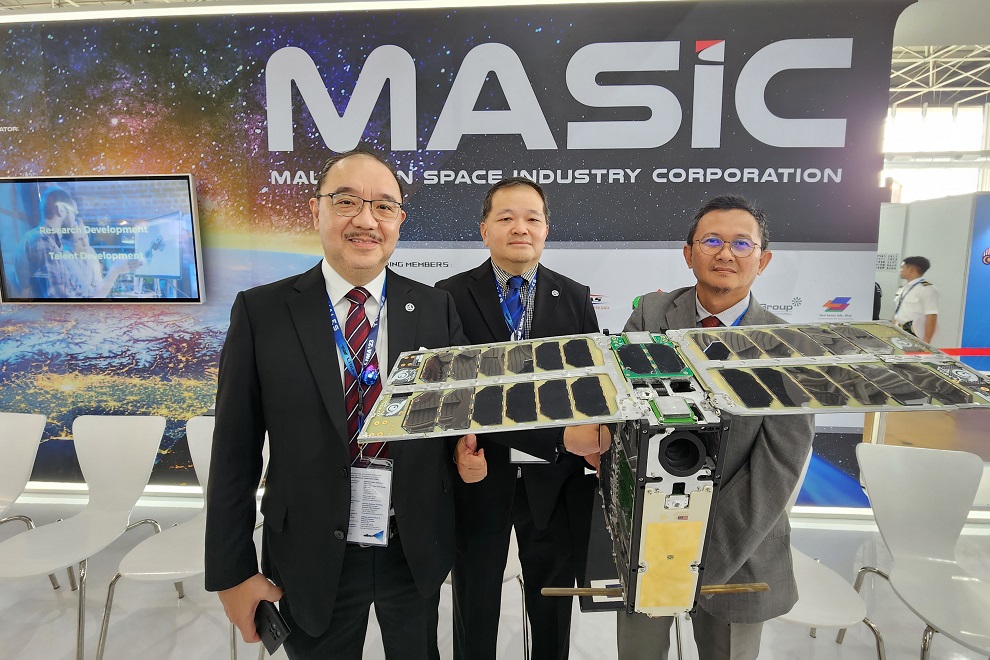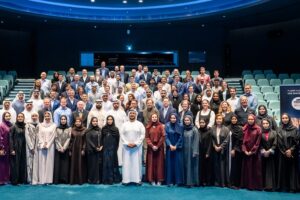Spearheading a massive thrust to propel Malaysia’s spacetech ecosystem, ANGKASA-X – a leading technological-social inclusion company with a mission to fulfil the country’s unicorn aspiration of establishing the ASEAN space economy – has officially announced the upcoming launch of the A-SEANSAT-PG1 (“PG1”) satellite on 27 June 2023.
With the launch of this PG1 satellite, ANGKASA-X will leverage on its technological know-how to lead the way towards the eventual forming of constellations of Low-Earth-Orbit (“LEO”) satellites which will be designed and assembled in Malaysia in the coming years. These satellite constellations will work together to offer an innovative Satellite-as-a-Service (“SaaS”) offering to countries in ASEAN.
The announcement was made by the Executive Chairman and CEO of ANGKASA-X, Dr. Sean Seah, at the 16th Langkawi International Maritime and Aerospace exhibition (“LIMA ’23”) in a special showcase of the PG1 satellite. The showcase was held in collaboration with the Malaysia Industry-Government Group for High Technology (“MIGHT”), a Government industry think tank under the auspices of the Prime Minister’s Office to execute market-driven partnerships.
“After years of hard work, R&D and fundraising, we are finally here! It is a giant step for ANGKASA-X’s dream since our incorporation in 2021 to launch our designed-in-Malaysia satellite into space. Through the launch of PG1 and the subsequent satellites, we intend to establish a robust space economy, especially within ASEAN to create a world where data connectivity and crucial information will be easily accessible and affordable for society, governments, and companies,” said Dr. Seah.
“We can achieve this by working together with like-minded organisations and global collaborators. In this regard, ANGKASA-X is working closely with various Malaysia Government agencies, local and global SpaceTech companies, the International Telecommunication Union, and our launcher-partners as we continue to launch more satellites to deliver the best available services and solutions using multiple LEO satellite constellations to serve ASEAN and countries along the equator,” he continued.
Dr. Seah also took the opportunity to thank the Ministry of Science, Technology and Innovation (“MOSTI”) and Malaysian Industry-Government Group for High Technology (“MIGHT”) for their unwavering support and the recent appointment of him as the first Vice President of the Malaysian Space Industry Corporation (“MASIC”) protem committee. The newly formed organisation consists of representatives from relevant agencies, ministries, and entities from the private sector, to serve as a one-stop centre towards more effective coordination matters pertaining to the space industry to create a dynamic space ecosystem.
Meanwhile, speaking on behalf of MIGHT, President & CEO Datuk Yusoff Sulaiman said, “As a Government body overseeing the development and management of the national space sector in a strategic, organised and comprehensive manner, we are pleased to be working together with ANGKASA-X in this highly exemplary endeavour. It is an ambitious undertaking, but we are certain through their vast technical know-how, coupled with the concerted coming together of various stakeholders, we can quite literally reach for the stars towards the furtherance of Malaysia’s space agenda.”
In line with the 12th Malaysia Plan, the launch of the PG1 satellite is also a stepping stone towards national development and the advancement of future talent in Malaysia, while accelerating technological evolution through the adoption and drive for future research and development.
This was signified with the signing of the MoU between ANGKASA-X and Sirius wishing to collaborate in setting up rocket launcher facilities for satellites as well as ground station facilities. This drive will further augment the need for more highly skilled Malaysian engineers, contributing to a boost for education and employment, reversing the brain drain, while attracting foreign and domestic investment, thus contributing to the nation’s economy.
The A-SEANSAT-PG1 satellite is slated for launch on 27 June 2023 at 1930 Hrs (MYT) from the Vostochny Cosmodrome in Russia, and will be broadcasted live in three locations in Malaysia, including the Malaysian Space Agency (“MYSA”) Office in KL, Universiti Sains Malaysia (“USM”) in Penang, and Sarawak Digital Economy Corporation Berhad (“SDEC”).








